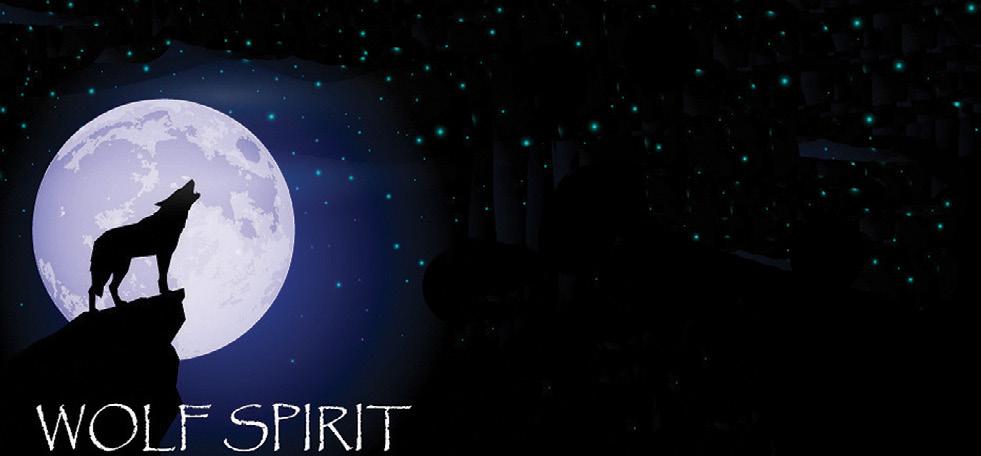
4 minute read
BRIAN SAUDER
Brian Sauderon
Faith-Based Grassroots Change
Advertisement
by Sandra Yeyati
With degrees in natural resource management, environmental science, religion and business administration, Mennonite Reverend Brian Sauder is an adjunct professor at two Illinois seminary schools, as well as president and executive director of Faith in Place, a Midwest nonprofit headquartered in Chicago that helps diverse faith-based groups become community leaders in a shared quest for environmental, social and racial justice.
How are places of faith uniquely positioned to address environmental and racial justice?
If you look at the history of the U.S. environmental justice movement, from Warren County, North Carolina, where black church women laid their bodies on the road to stop toxic waste dump trucks in their community, to Dr. Benjamin Chavis’ coining of the phrase “environmental racism” through the United Church of Christ, there’s a legacy of people of faith and diverse spiritualities calling out environmental racism and organizing the community to take action. We view ourselves in that historical lineage, with a mission to provide the tools, resources and programming for our faith partners to continue to advance these valuable pursuits.
quangho/Shutterstock.com
How does Faith in Place work?
It’s very grassroots. We believe in a Green Team model, which is a core group of people within a faith community, anywhere from three to 30 individuals, depending on the size of the community. Through coaching, we help teams evaluate the community’s needs and assets, set goals for the year, and create a strategic plan to address needs through programming, advocacy and a network of nonprofit partners.
Why are Green Teams effective in bringing about change?
The messenger matters. When you work with a community, it’s the people in that community that are going to understand the culture, the theology, the context, the history, the politics of the local body; so they understand how to meet people where they’re at and how to talk about these issues in a way that’s effective and attainable.
Can you describe a noteworthy Faith in Place project?
We partnered with a Green Team that wanted to address the need of hunger in their community by turning four acres of land that they had into a congregationsupported agriculture project (CSA), where people paid upfront to get a weekly bushel of produce grown on the land, while the church tithed 10 percent of it to local food pantries. Over several years, we helped them write a business plan, approach the committee structure of the church, hire a farmer, set up a legal structure and launch Sola Gratia Farm, which today is employing a bunch of people and stocking local food pantries with fresh tomatoes, kale, fruits and vegetables grown right there in the community. Once Faith in Place shared this story, other faith partners wanted to replicate it. We now support five different CSAs across Illinois.
Does Faith in Place welcome all denominations?
religion or a spiritual tradition, people are bringing the wisdom of the ages to bear on understanding the moment we’re in. Everything is connected, and the ecological crisis is a spiritual crisis. The healing of me and the healing of you and the healing of Earth are bound together, and this mutuality is core to all our different spiritualities and traditions. At our annual Green Team summit, people from different regions, backgrounds and religions come together, all united by the air we breathe, the water we drink, the land where our food is grown and a deep sense of calling and purpose. It’s hope-inspiring in a world that is so divided.

What areas of environmental justice do you focus on?
A Green Team might say, “We have an issue with lead pipes in our communities,” or, “We have an issue with high schoolage youth needing employment.” Our programs, which are shaped by the needs of our Green Teams and are constantly being reevaluated and reshaped, cover sustainable food and land use, climate change and energy, environmental advocacy, youth empowerment, and water and flooding prevention. We also advocate to policymakers. Last year in Illinois, Green Teams helped pass the Climate and Equitable Jobs Act by convincing legislators to not only reduce carbon emissions, but also prioritize employment opportunities in the new green economy for highunemployment neighborhoods.

What is your philosophy concerning the intersection between faith and environmental and social justice?
We’ve got to be committed to the transformation that we seek. Our spirituality calls us to remember how connected we are. One way to describe justice is love in action—a love that begins with ourselves— and as we love ourselves more deeply, it spurs outward action that seeks to dismantle injustice.
Sandra Yeyati, J.D., is a professional writer and editor. Reach her at SandraYeyati@gmail.com.
6th Bi-Annual 8th Bi-Annual
presented by the Holistic Community Professionals Statewide Benefit* HoliStic expo
Sunday | May 1 | 10am - 5pm | Vendors 10am-4pm 75+ Exhibitors and Speakers!
DoubleTree by Hilton 42 Century Drive, Bristol, CT 06010
FREE DRUM HEaling 4-5pm
Speakers all day Free Raffles • Drumming
gRanD PRiZE:
A Hilton Overnight Stay for Two! FREE aDMiSSiOn (Donations Accepted*) * All door donations to benefit: Hartford Hospital's Integrative Medicine, Debbie Bator Memorial Fund, and CT Children’s Medical Center.
For more information please contact: Shirley R. Bloethe at 860-989-0033 Vendors apply at: yourholisticevents.com Email: yourholisticevents@gmail.com FB - Passport to Health and Wellness Expo
Holistic Community Professionals
www.HolisticCommunityProfessionals.org
Individual, Family, Couples and Group Counseling
WOLF SPIRIT
• Art & Play Therapy • Sound Healing & Drumming • Hypnosis, Meditation & Energy Work • EMDR & Trauma Healing • Traditional & Alternative Modalities
Husky/Medicaid and Most Insurance Accepted • WolfSpiritWellness.org 203-263-3175 • 670 Main Street South, Suite B2, Woodbury, CT 06798




